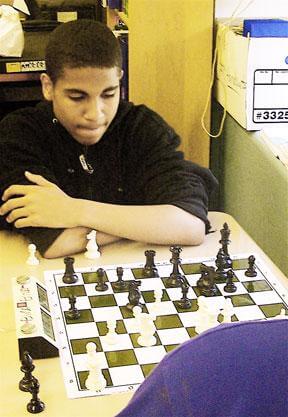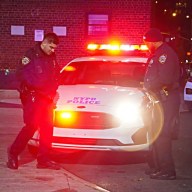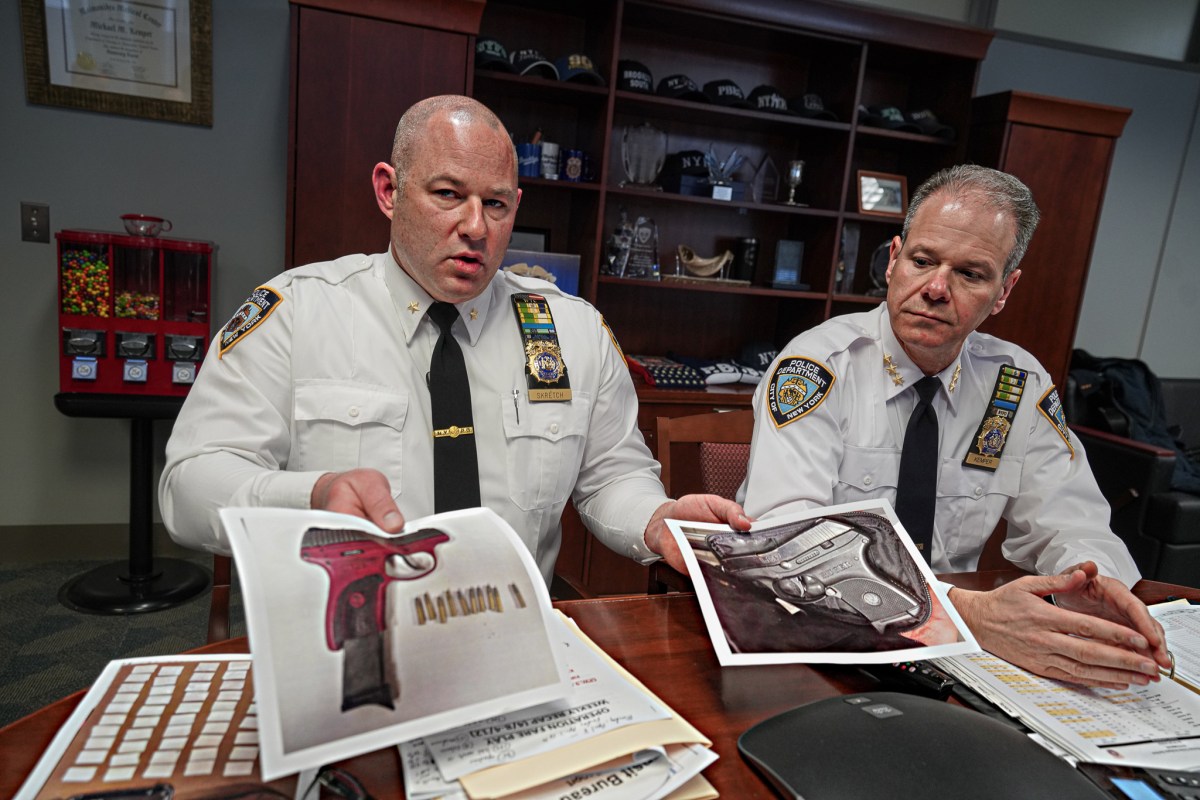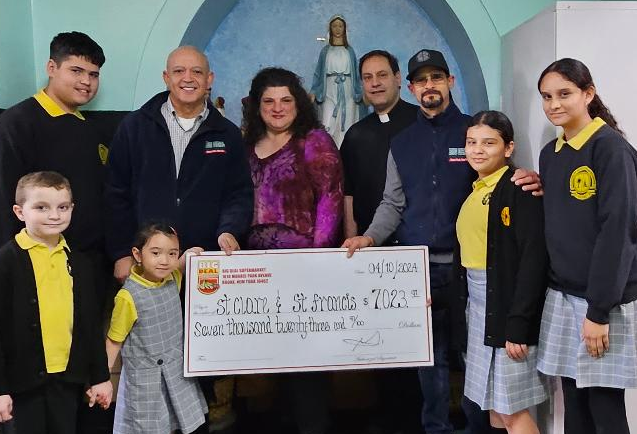Earn a pawn; earn an A. Beware the knight; beware the night. Defend your queen; defend your dream. Risk and reward; victory and defeat. Life in the south Bronx is a chess match, particularly for Matheu Jefferson and Rahwaizh Abdul-Rahman. Jefferson and Abdul-Rahman anchor the Bronx Writing Academy chess team, a national contender.
“When I sit down at the chess board, nothing else matters,” said Adbul-Rahman, 14. “The chess board is my domain. I rule.”
The Bronx Writing Academy is a four-year old middle school on E. 167th Street; 84 percent of students qualify for free lunch. In 2008, the BWA chess team snagged three trophies in Dallas. In 2009, the team netted a trophy in Nashville.
“We have a lot of recent arrivals – students who don’t speak English,” math teacher Martin Caceres said. “Chess is a good way for them to build confidence.”
Caceres and math teacher Jose Carrasco manage the BWA chess team; they work with coaches from a non-profit organization, Chess-in-the-Schools. According to Carrasco, students who play chess are better equipped to tackle math.
“Chess works because it demands discipline, determination, desire and decision-making,” he said. “The same qualities a student needs to succeed in school.”
Take Jefferson, for example. The 14-year old learned to play chess in kindergarten. In 2005, he joined the P.S. 70 chess team. Jefferson won the first tournament he entered.
“I study chess three hours every day,” Jefferson, an eighth grader bound for Bronx Science, said. “I’m addicted to chess. I’m addicted to competition.”
According to Caceres, chess is democratic. If you work hard, you improve – no matter what language you speak, no matter what country your parents are from.
“A lot of the players [from other schools] are rich,” Abdul-Rahman said. “They have personal coaches. I read my chess book. It’s all I need.”
Math is democratic, too. Work hard at math, you improve. But chess is different…chess is fun. Students who cut class after a poor math test will play chess and lose, again and again.
“Match one, you lose two rooks,” Caceres said. “Match two, you lose one. Match three, you win.”
When Caceres formed the chess team, in 2005, he took on a sixth grader named Starlin. Starlin had trouble with math – used his fingers to multiply. It took him three months to learn the rules of chess.
“Three years later, he played chess like a computer,” Caceres said. “Slow but accurate.”
Jefferson and Adbul-Rahman are celebrities at the BWA.
“I’m not a nerd,” Jefferson said. “I play chess. I get respect.”
























